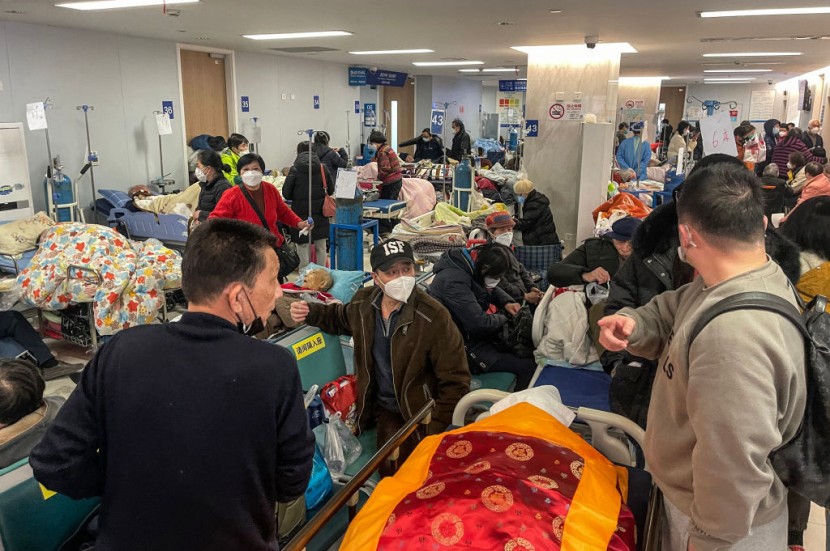
WHO advisers are concerned over the COVID-19 breakout in the People's Republic of China, especially the data from there.
WHO Advisers Call for Precise Info on COVID-19 Data
At an important meeting held on Tuesday, top scientists who counsel the World Health Organization (WHO) stated that they desired a "more accurate picture" of the COVID-19 scenario from China's leading experts due to fears about the disease's quick spread, reported Straits Times.
To exchange information on the viral variations that are comparatively recent in China, WHO decided to invite Chinese researchers to a virtual closed session with its technical advisory group on viral evolution last Tuesday. Full access and the media are still not authorized.
Beijing suspended the zero-Covid measures in December 2022. Cases that are starting to increase with official data have been imprecise.
Based on the statement by Dr. Marion Koopmans, a Dutch virologist who is part of the WHO committee, the body wants to see something more accurate that depends on the actual score.
Koopmans told Reuters before the meeting had said the Chinese data, like how many hospitalized and not convincing. He mentioned that it would be better for Beijing, but the information needs to be more straightforward.
COVID-19 Breakout Is of Concern
Professor Tulio de Oliveira, a South African scientist who serves as a panel member and whose group has discovered a few new types, mentioned that while it is beneficial to obtain more information from China, this one is true worldwide, noted The Economic Times.
Sequencing information from China has already been supplied to the online Gisaid hub, an international data science initiative. This has disclosed that the versions widely circulated there are branches of Omicron in connection with the dominant varieties in the rest of the world.
At the WHO conference on Tuesday, Dr. Koopmans and his peers predict conversing with investigators from the Chinese Center for Disease Control and Prevention regarding details of a similar nature.
The meeting today is a worldwide council of specialists that have come together during the pandemic and obtained constant updates from countries trying to deal with substantial epidemics of the illness or the development of new ones.
Dr. Koopmans indicated that only a "tiny number" of China's case scenarios had been analyzed so far, out of 700, and advised the formation of a global monitoring system to track Sars-CoV-2.
She added that the information needs to be better, not only in China.
Last December, the WHO commented it had not gotten information from the mainland government about how many were hospitalized after lifting the zero-Covid policy.
A few health experts think there is an attempt to keep crucial information on how extensive the outbreak is in the country.
Dr. de Oliveira panned how to travel limitations to China placed by several countries, which South Africa was subjected to when the Beta and Omicron variants had been raging.
He added that after three years of the pandemic, there should be mistakes that should be learned from, like sharing more data, a better way to support and avoid limiting travel to the affected country.
WHO advisers are worried the COVID-19 breakout in the People's Republic of China is worse.
Related Article: Russia Asserts Washington Should Pay Damages to Countries Affected by the Pandemic; Did COVID-19 Really Originate From the US Biolab?








